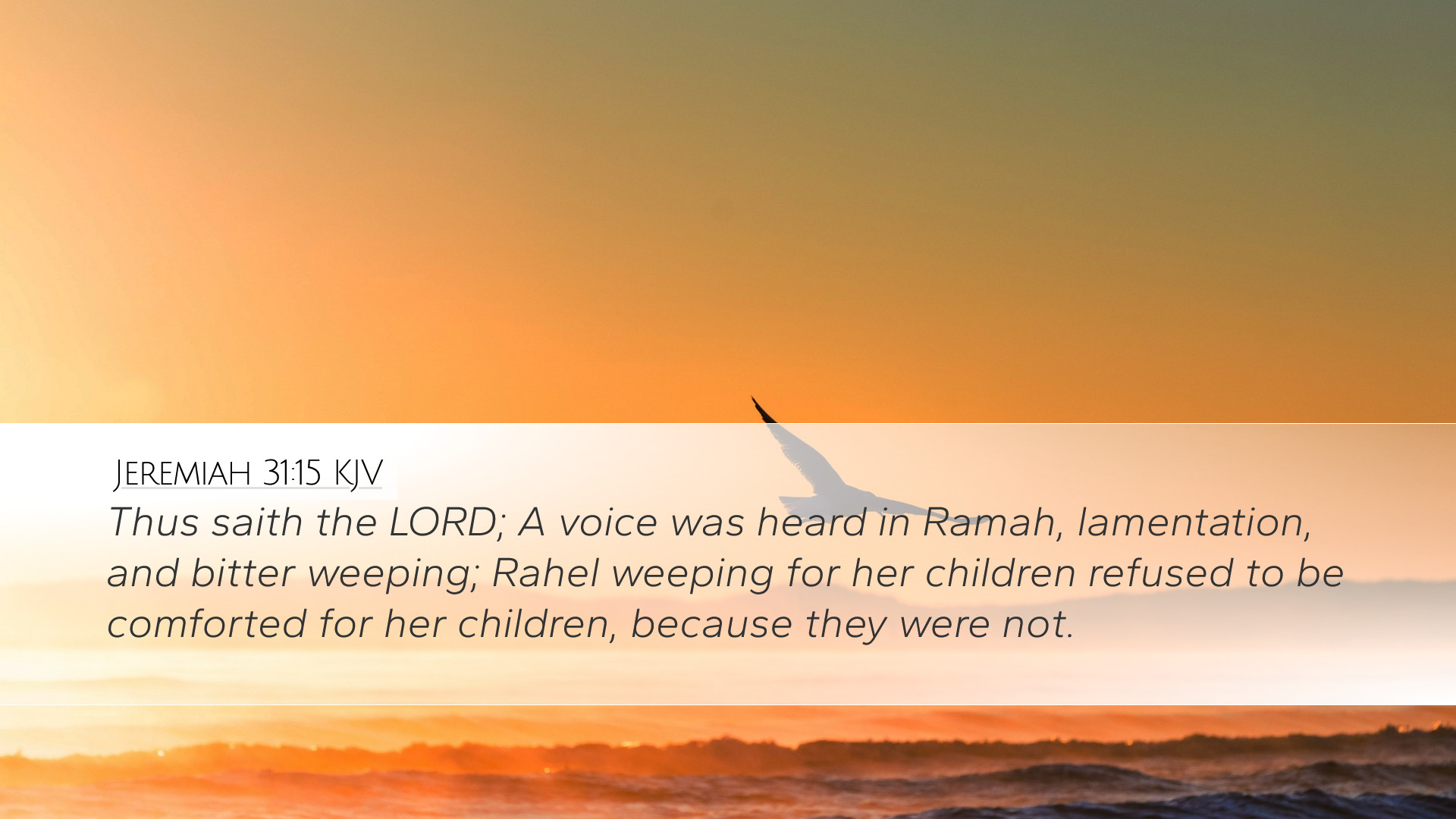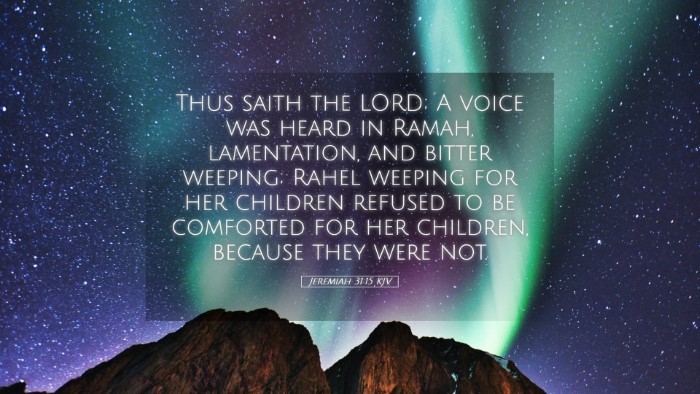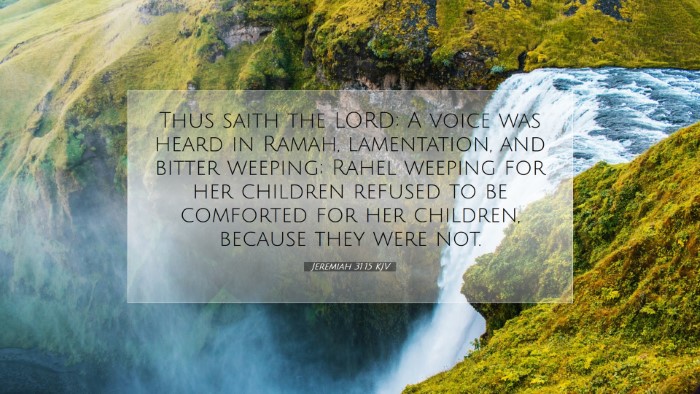Commentary on Jeremiah 31:15
Jeremiah 31:15 states: "Thus says the LORD: A voice is heard in Ramah, lamentation and bitter weeping. Rachel is weeping for her children; she refuses to be comforted for her children because they are no more." This verse captures the profound sorrow and lamentation associated with the exile and the loss of children, encapsulating the emotional weight of God's judgment and the hope of future restoration.
Contextual Background
The prophetic context of Jeremiah is crucial for understanding the depth of this lamentation. Jeremiah was a prophet during a tumultuous period before and during the Babylonian captivity. The verse places Adam Clarke's observations about the sorrows surrounding the fall of Jerusalem and its consequences in stark relief.
Analysis of Jeremiah 31:15
In this verse, several significant themes emerge:
- The Voice of Lament: The phrase "A voice is heard in Ramah" indicates a widespread mourning heard throughout the land. Matthew Henry elaborates on this, suggesting that this lamentation signifies collective grief.
- Rachel's Weeping: Rachel symbolizes the mothers of Israel who grieve for their lost children, as she is understood to represent the matriarch of the nation. Albert Barnes points out that Rachel's weeping is emblematic of both physical loss and the emotional pain of separation.
- Refusal to be Comforted: The refusal to be comforted reflects the depth of their mourning. Adam Clarke highlights how this unwavering grief manifests due to the finality of death and loss during the exile, drawing a parallel with the painful experiences of families during times of war and persecution.
- The Prophetic Foretelling: This prophecy prefigures the deeper fulfillment seen in the New Testament, specifically in Matthew 2:18, where it is again invoked in relation to Herod's massacre of the children in Bethlehem.
Theological Implications
From a theological perspective, this verse invites reflection on several key points:
- The Nature of Divine Judgment: The lamentation underscores that judgment from God is not merely a judicial action but deeply intertwined with human emotion and consequence.
- Hope Amidst Mourning: Despite the mourning, this passage is also situated within a larger narrative of hope and restoration (Jeremiah 31:16-17), which assures the grieving that there will come a time when their children will return.
- The Universality of Suffering: It resonates with contemporary issues of loss and suffering, encouraging pastors and theologians to connect the historical context of weeping with the ongoing lamentation in our world today.
Application for Pastors and Theologians
This verse serves as a poignant reminder for pastors and theologians to address the realities of suffering in their ministries. It calls for sensitivity towards those experiencing grief, as well as engaging with the promise of hope that follows lamentation.
As Matthew Henry notes, understanding the dimensions of sorrow can empower ministers to provide a more compassionate response to their congregations, aligning with the biblical narrative of restoration that comes after mourning.
Conclusion
In conclusion, Jeremiah 31:15 offers deep insights into the nature of grief, the character of God in terms of justice and compassion, and the promise of restoration that stands at the core of the biblical storyline. Through this verse, the tradition of lament is honored, while simultaneously holding a space for hope and healing—a duality essential for pastoral care and theological education.


